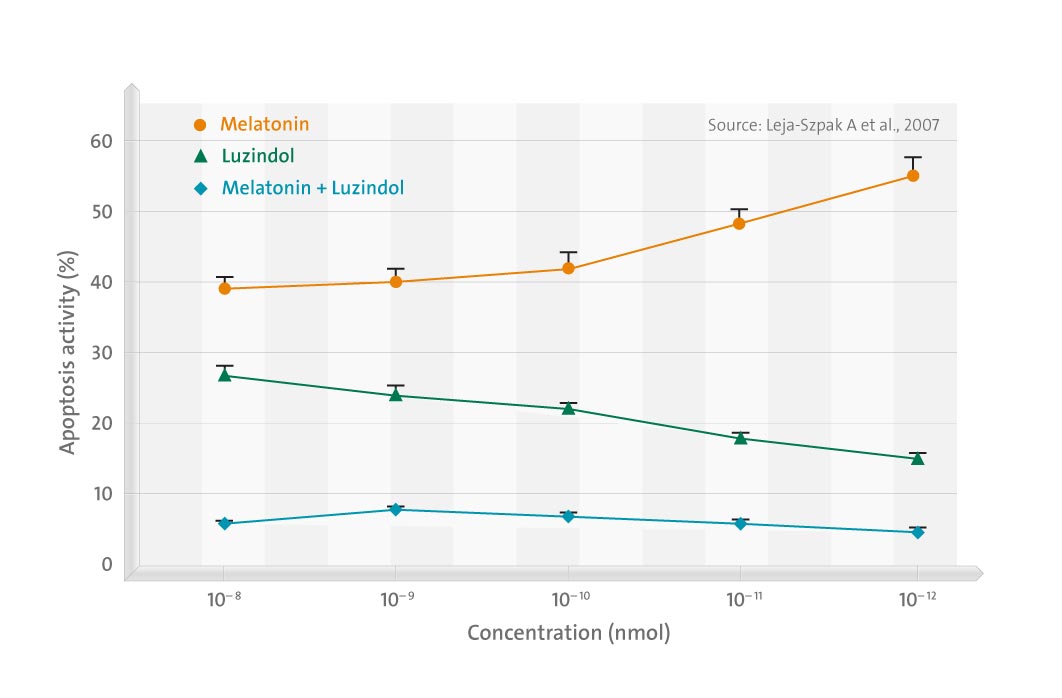Pancreatic cancer is a highly lethal disease with a poor prognosis for long-term survival rate at all stages of invasiveness. It responds poorly to radio- and chemotherapy because the tumor cells are resistant to apoptosis.
Melatonin has been reported to inhibit pancreatic cancer growth in experimental studies in animals but the effect of melatonin on cultured human pancreatic carcinoma cells has not been tested. Moreover, we have recently shown that melatonin stimulates production of two major anti-apoptotic heat shock proteins, HSP27 and HSP 90, in pancreatic carcinoma cells.
This study investigated the changes in intrinsic pathway of apoptosis at the mitochondrial level and cascade of caspases in human pancreatic carcinoma cells (PANC-1) cells subjected to melatonin and/or luzindole. Melatonin (10⁻⁸ -10⁻¹² m), the nonselective melatonin receptor antagonist, luzindole (10⁻⁸ -10⁻¹² m) or a combination of both agents were added to PANC-1 cell cultures. Cells were harvested, and the cytoplasmic proteins were isolated after 24 and 48 hr of incubation and analyzed employing co-immunoprecipitation and western blot.
Administration of melatonin to the PANC-1 cells resulted in the stimulation of Bcl-2/Bax and caspase-9 proteins levels. The strongest signal of these pro-apoptotic factors was observed at the low concentration (10⁻¹² m) of melatonin. Pretreatment with luzindole alone and prior to the addition of melatonin reversed the stimulatory effect of this indoloamine on Bcl-2/Bax and caspase-9 proteins expression in PANC-1 cells.
This is the first study to demonstrate a pro-apoptotic effect of low (physiological) concentration of melatonin on the pancreatic carcinoma cells. In conclusion, melatonin induced pro-apoptotic pathways in human pancreatic carcinoma, probably by interaction with the Mel-1 A/B receptors.
